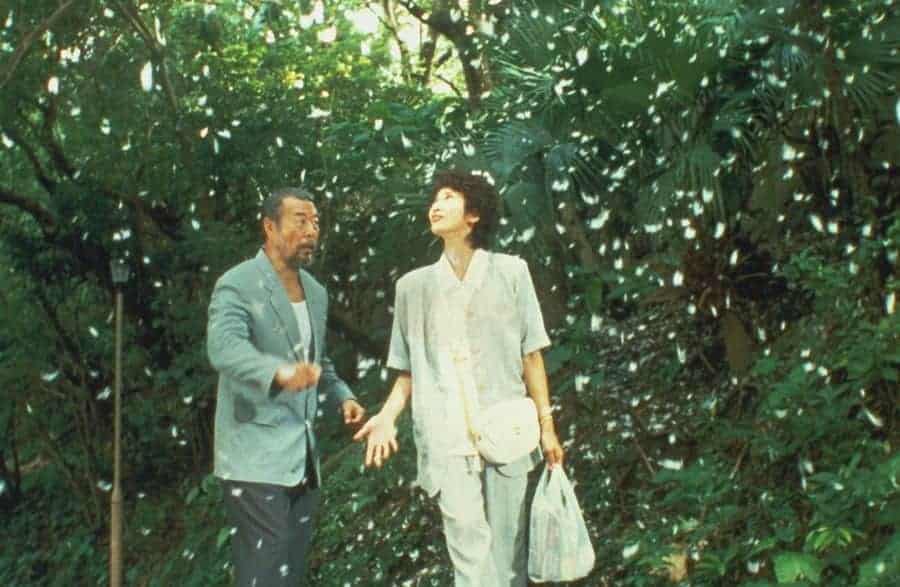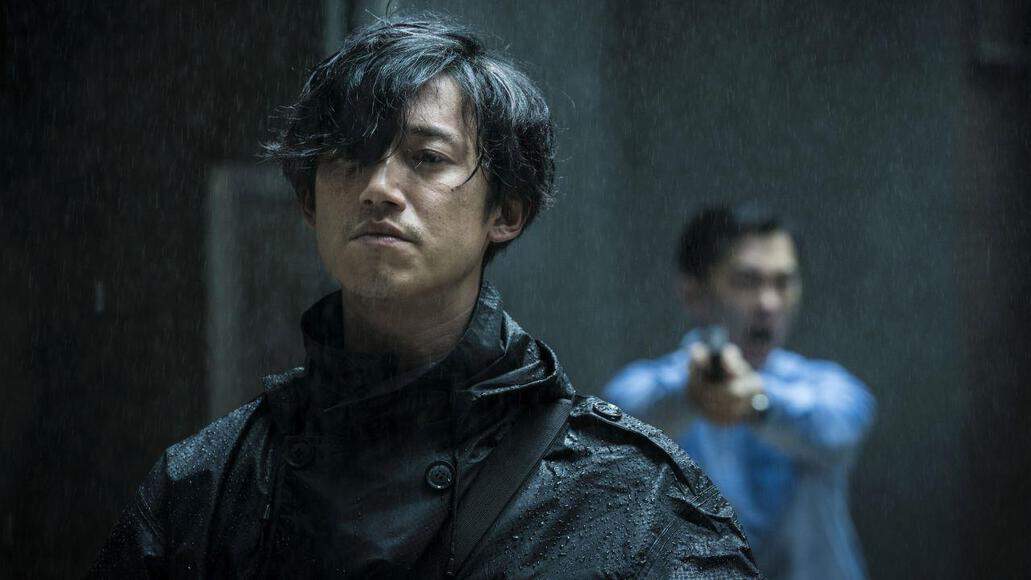Winner of the Prize of the Ecumenical Jury and the Silver Berlin Bear for Josephine Siao's performance in Berlin International Film Festival, “Summer Snow” is Ann Hui's most celebrated film, and definitely one of her best works.
“Summer Snow” screened at Five Flavours
The script revolves around the Suns, a family consisting of Bing, who is an examiner in a driving school, May, who works in a company that imports toilet paper from China, and Allen, their 20-something son. Their lives are relatively regular, and are only tormented by Bing's father, Lin Sun, a former flight lieutenant in the Air Force, a truly authoritarian man who treats everyone around him, and particularly the women, as his servants. The situation takes a huge turn for the worse, when Bing's mother dies, and Lin Sun is diagnosed with Alzheimer's. The family has to take care of the elderly man, who frequently disappears and seems to lose his connection with reality even more as time passes. At the same time, May has to face a new woman in her company, Janice, whose beauty and effort to computerize the company seem to threaten May's job.
After a number of incidents, and with the family members in the brink of a nervous breakdown, they decide to install the sick man into a facility that will take care of him for a part of the day. When even that does not work, they decide to leave him in a much worse establishment, reluctantly.
Ann Hui presents a number of social comments, most of which are represented by May's character, a woman in her forties who is part of an in-between generation, living in an era that is about to forget the blights of the war and the traditions that dominated that generation, but is not ready to adapt to the huge technological developments that are coming their way. The first aspect derives from Lin Sun, who represents the past, and the second from Janice, who symbolizes the new generation.
Furthermore, Hui entails comments about the chaotic life in the extremely antagonistic capitalist world and the almost inhumane living conditions in the megalopolis, the relationship between fathers and children, the eternal question of how to deal with a sick relative, particularly if he is a father or a mother, and the resonance between different generations.
Despite the dramatic basis of the story, Hui manages to present all of the aforementioned elements in a delightful tone, which manages to be much closer to comedy than drama, in a tactic that is the highlight of the narrative. The fact that she manages to keep the humor until the end, and despite the dramatic developments in the lives of the family members, is another accomplishment. This trait derives from the many comedic episodes that involve all of the protagonists in different cases, as they succeed in retaining a relatively light atmosphere, throughout the film.
The scene where the family and particularly Bing and May have a great time during a festival, dancing and enjoying themselves, is one of the greatest moments in the movie, as it highlights Hui's optimistic approach to her subject. This particular approach occasionally borders on the romantic, especially regarding the introduction of the new technologies and May and her husband's relationship with their son, but even this aspect fits the general sense of the film perfectly.
Mark Lee Ping-bing's cinematography is great as always, as he uses the narrow house to present the suffocating situation the family, and particularly May, is in. His exterior shots are also great, as they highlight a number of different aspects of Hong Kong. Wong Yee Shun's editing keeps the film flowing in a great pace that compliments the style of the narrative.

The acting is another highlight of the film. Josephine Siao is outstanding as May, a woman who tries to balance all the problems her life has presented her without any of it being her fault, and in the same time, to take care of everybody, including the company she works for. Roy Chiao as Lin Sun is also great as the senile man who cannot get away from his past, while he is equally convincing in both the dramatic and the comic moments. Law Kar-ying as Bing complements the two aforementioned characters quite well, as he highlights his weak, undetermined, and always-leaning-on-his-wife behavior.
“Summer Snow” is a masterpiece of Hong Kong cinema, a film that delivers in all aspects, as Hui manages to deal with a number of very important issues in very entertaining fashion.


















